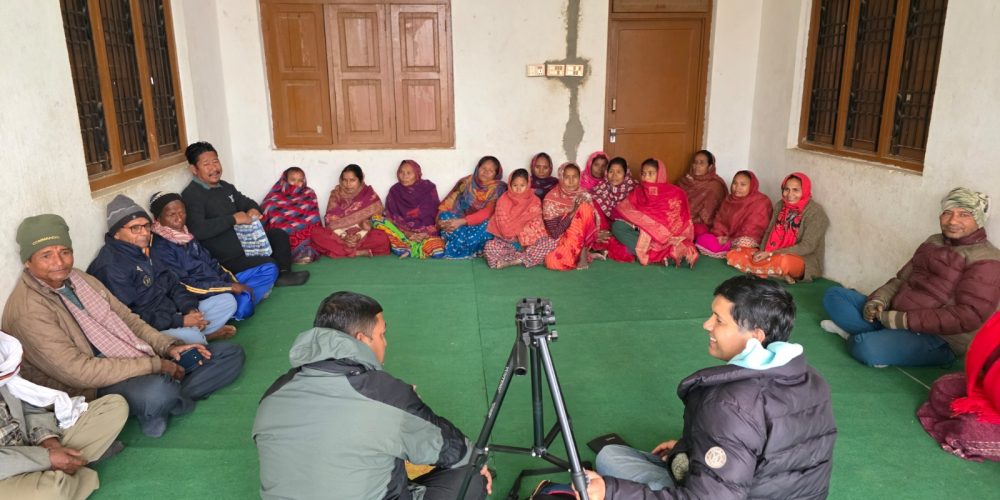
Kathmandu, June 1, 2025 — A one-day national workshop on nature crime, with a focus on illegal logging in Rautahat, was organized by the Federation of Community Forestry Users, Nepal (FECOFUN) on the occasion of its 30th establishment anniversary. Held in Kathmandu, the workshop brought together over 70 participants from various districts across Nepal, representing community forest user groups, local government bodies, and environmental activists.
Facilitated by Birkha Bahadur Shahi, Senior Vice-Chairperson of FECOFUN, the event aimed to deepen understanding of nature crimes and explore community-based strategies to tackle illegal logging. The highlight of the workshop was a presentation by Dr. Arjun Chapagain, which delved into the nature crime landscape in Nepal, using the case of Rautahat as a key example.
Understanding Nature Crime
The presentation emphasized that nature crime is a term still lacking a universally agreed definition. Drawing from frameworks like the United Nations Convention against Transnational Organized Crime (UNTOC) and the Global Initiative Against Transnational Organized Crime (GI-TOC), nature crimes were described as illegal activities often carried out by organized groups using violence, corruption, or deception for profit. These crimes blur the lines between legality and illegality, often providing livelihoods and creating complex socio-economic dynamics.
Internationally recognized forms of nature crime include:
- Illegal Logging
- Illegal Fishing
- Illegal Mining
- Wildlife Trafficking
- Land Conversion
These crimes are considered among the largest illicit economies in the world, with far-reaching impacts such as ecosystem destruction, human rights violations, economic instability, and climate change acceleration.
Rautahat Case Study: A Hotspot of Illegal Logging
The case of illegal logging in Rautahat district presented a stark example of how organized crime networks exploit forest resources. The project, supported by the Global Initiative and Resilience Fund, was implemented jointly by FECOFUN Central and District FECOFUN Rautahat, focusing on ten Community Forest User Groups (CFUGs) and three collaborative forests in three municipalities: Gujara, Phatuwabijayapur, and Chandrapur.
Key illegal practices identified include:
- Timber Smuggling:
Timber is cut into smaller, transportable pieces and moved using bicycles, motorcycles, bullet carts, and Sumo vehicles—often destined for the Indian market or local brick kilns. - Ghatgaddi Exploitation:
Logs stored at collection points, known as Ghatgaddi, are particularly vulnerable at night. Smugglers take advantage of poor oversight and move timber under the cover of darkness through nearby border settlements. - River Transportation:
During the monsoon season, rivers such as the Bagmati become stealthy conduits for smuggling logs across the border. - Disguised Smuggling:
Exploiting cultural norms, timber and firewood are often disguised as gifts for weddings, religious ceremonies, or Yagyas to evade border checks.
Community-Based Response and Policy Advocacy
To combat illegal logging, the project established three anti-crime clusters, each comprising 15 members drawn from local and district FECOFUN chapters, government sub-divisional offices, security agencies, local municipalities, and CFUGs. These groups are tasked with monitoring, awareness-raising, and coordinating with enforcement bodies.
Ten awareness programs on the legal provisions and consequences of forest crimes were held in the project area. A high-level coordination meeting with stakeholders emphasized the need for sustained collaboration, stronger enforcement, and grassroots empowerment.
Participants in the workshop engaged in a lively discussion following the presentation, raising questions about smuggling routes, the scale of operations, and the socio-economic drivers behind illegal logging. The consensus highlighted the urgent need for integrated solutions involving policy reforms, community engagement, and cross-border cooperation.
As FECOFUN marks three decades of community forestry advocacy, the workshop served as a powerful reminder that safeguarding Nepal’s forests is not only an environmental priority but a national security imperative.










